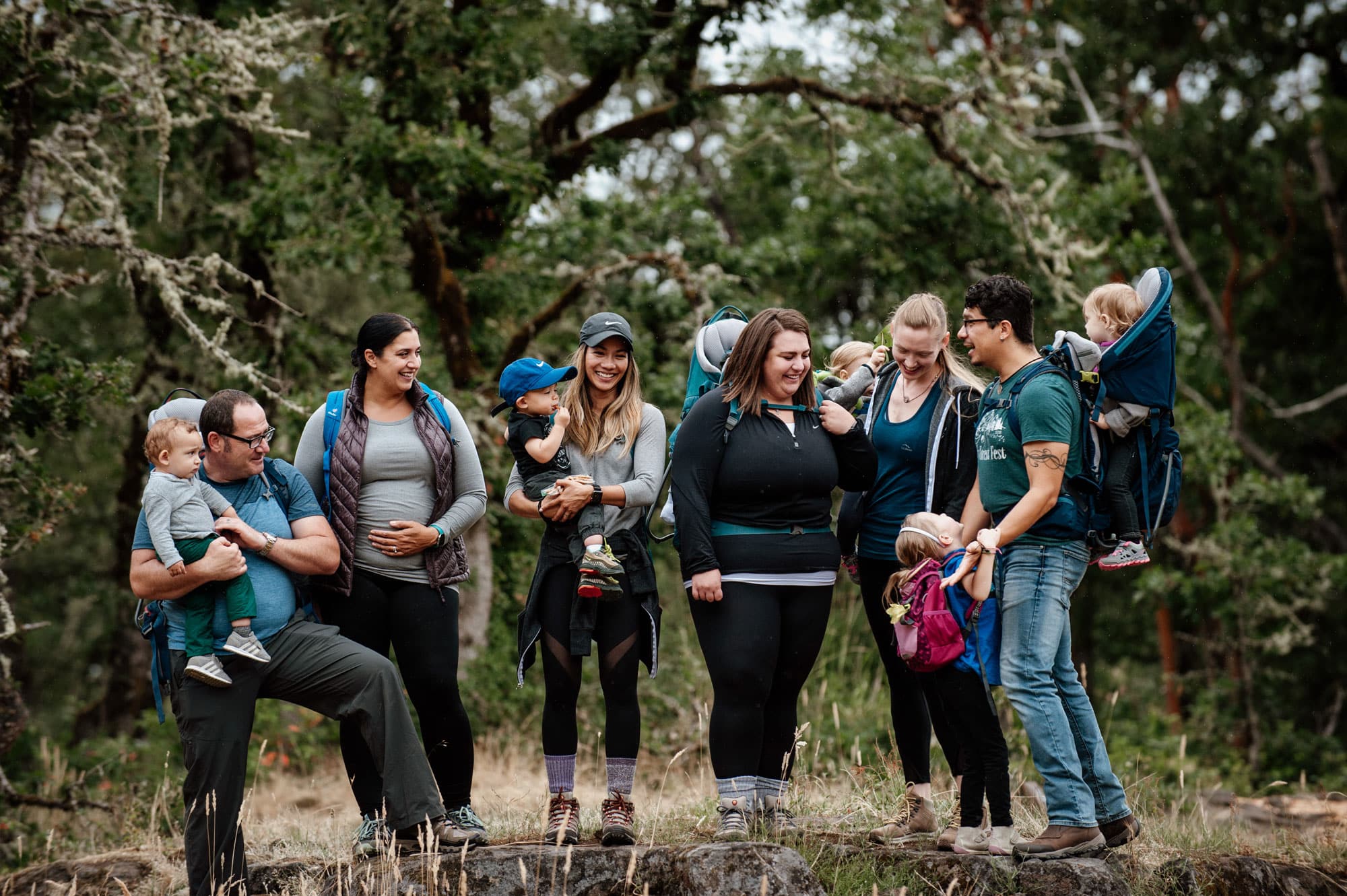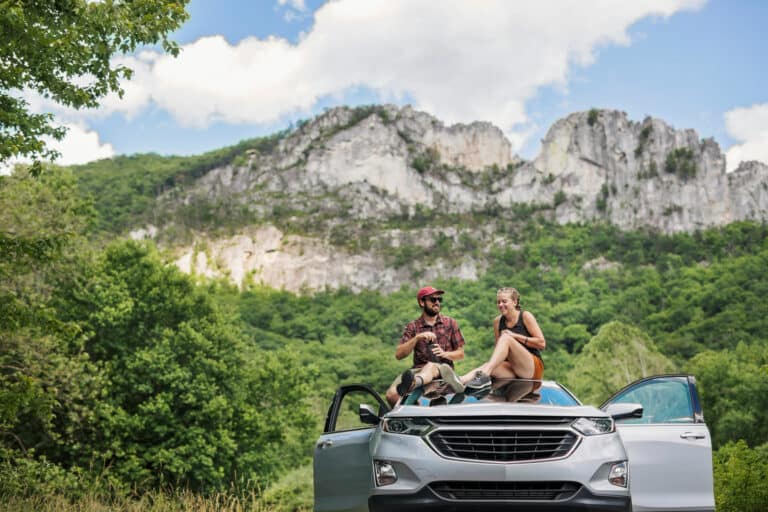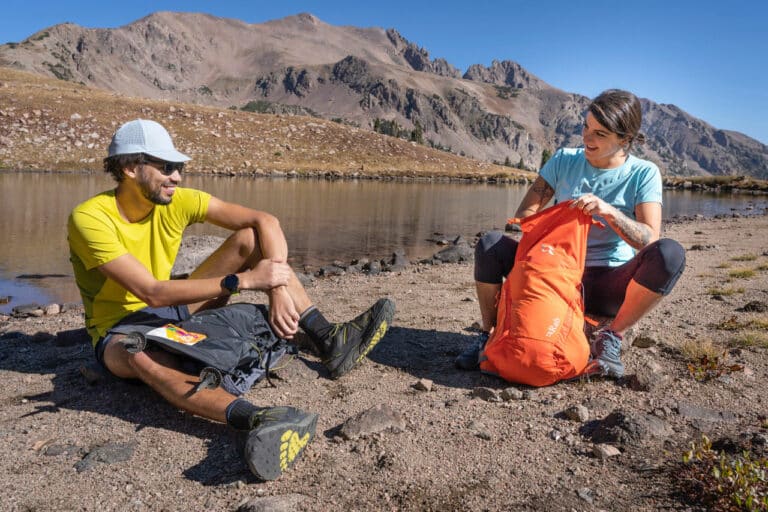Parent-Approved Tips for Hiking with Your Infant
Carolyn Hays remembers being an anxious mess the first time she took her 6-week-old son, Alex, on a hike.
It was a bluebird day in 2019, and Hays and her husband had just driven 60 miles north from Greenville, S.C., to Gorges State Park. They planned to hike Rainbow Falls Trail, a four-mile out-and-back that leads to a sheer granite cliff on the Horsepasture River. But as Hays stood at the trailhead, she couldn’t shake an overwhelming sense of dread.
What if Alex falls out of his carrier? She worried. Where do I put his dirty diapers? How will I feed him? Will he cry the entire hike?
“I was a nervous wreck, but we ended up having a good time,” Hays says with a soft smile. “The experience reconnected me to who I was before I became a mother. It also helped me realize that hiking with a baby is totally possible.”
In the years since, Hays has trekked as far as 12 miles at a time with little Alex in tow. Her youngest child, 2-year-old Lilly, is shaping up to be an avid adventurer too. Still, Hays is quick to admit that taking infants into the woods isn’t always easy. There will be poopy catastrophes, teary-eyed tantrums, and sleep-deprived days when a two-mile walk feels like a marathon.
To help you navigate these challenges, we asked Hays and a few other parents for tips on taking your baby from cradle to crag.
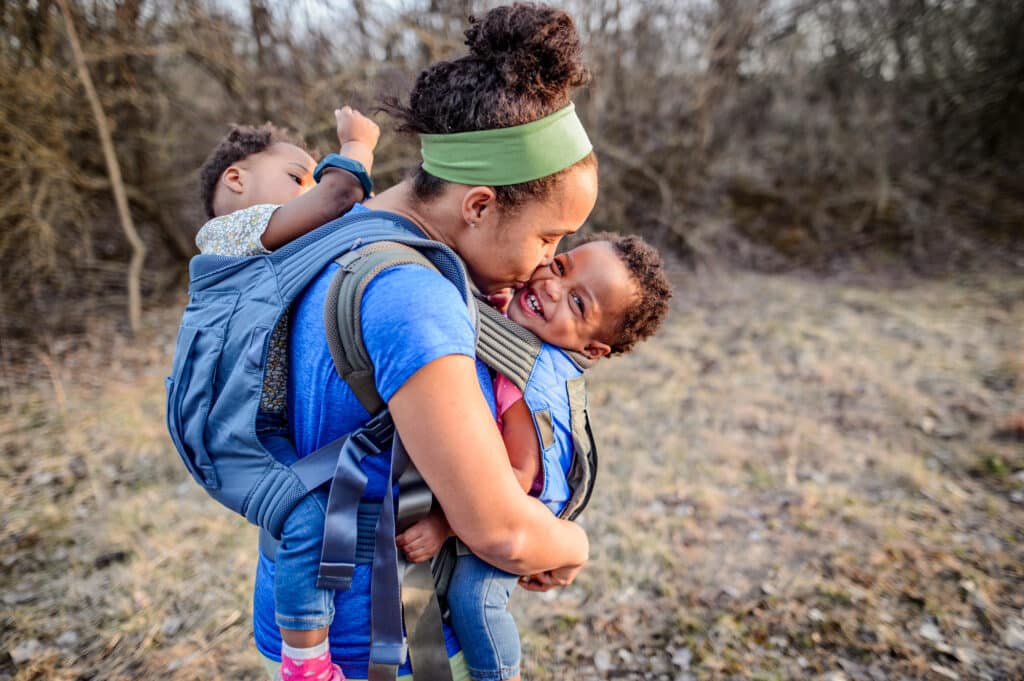
Tip #1: Find Your Tribe
When Hays started hiking with Alex, it was always reassuring to see other moms and dads on the trail with their tykes. That’s why she joined Hike it Baby, a nonprofit that helps parents get into nature with their kiddos.
Founded in 2016, the organization now has more than 300 branches across North America, with each branch led by an ambassador. Hays is the ambassador for Greenville, S.C. Her duties include organizing group hikes, sharing digital resources, and addressing hiking-specific questions like, “How do I know if my infant is too hot on the trail?” (The answer: If your baby is crying without tears or their soft spot is sunken in, they may be dehydrated. Rest in the shade for a bottle and a breather.)
Hays takes great satisfaction in easing new parents’ nerves. But she, too, has found the camaraderie of her Hike it Baby group comforting, especially in the early months of infancy when the “walls felt like they were closing in.”
Hiking with another adult can also ease the stress of colic-induced crying fits and fussy feeding sessions. “You can tag-team responsibilities,” says Vanessa Wright, ambassador for the Asheville branch of Hike it Baby. “Plus, the extra person can carry your bag filled with all the things you might possibly need.”
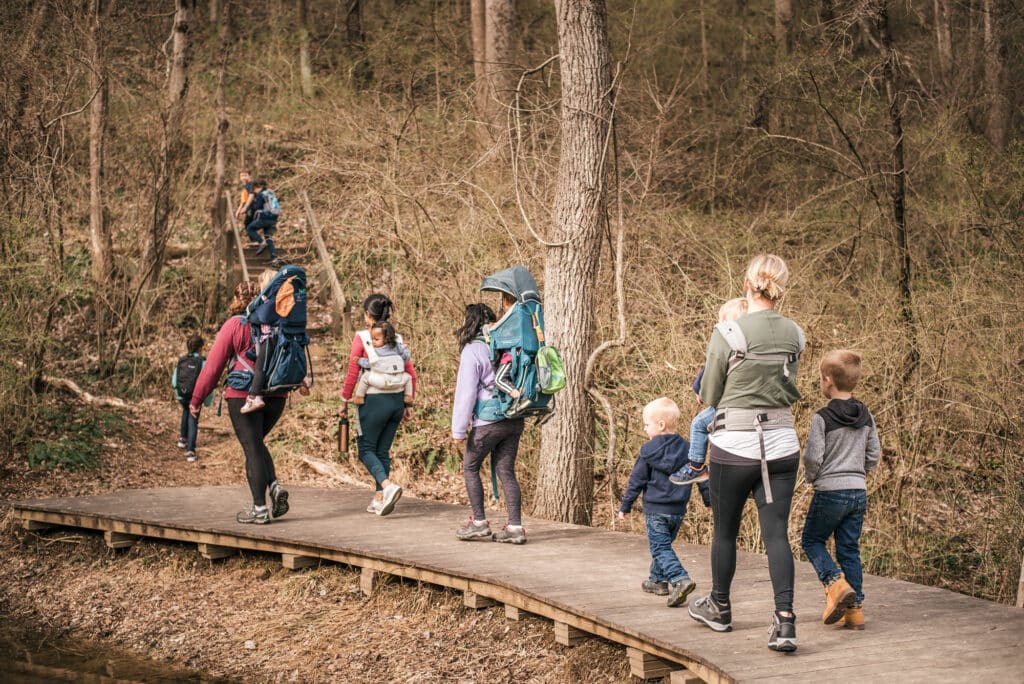
Tip #2: Prepare for Poop (And Other Inconveniences)
Speaking of bags, Clayton Manche now knows the value. But not long ago, taking his 2-year-old daughter, Goldie, and his 11-month-old son, Arlen, on an impromptu Blue Ridge Parkway hike without a diaper bag sounded like a good idea. That is until nature called. “We had to walk a mile back to the car with two leaky, poopy diapers,” he sighs. “It was terrible.”
Manche, who offers guided hikes and jeep tours as the owner of Asheville Adventures, learned very quickly from his mistake. “Packing extra diapers can go a long way,” he says. A plastic grocery bag helps too, just in case things get super messy.
Of course, blowouts are just one inconvenience parents must plan for. Case in point: When Wright was hiking with her youngest daughter one summer, “the sky opened up and started pouring rain.” With nowhere to go and no gear to protect her infant, she hustled back to the car as quickly as she could.
Since then, Wright always checks the forecast before heading out. She’s also sure to pack extra clothes and other essentials like teethers, bottles, sunscreen, bug spray, toys, and trail-friendly snacks. (If you’re breastfeeding, you’ll want to bring loads of water too.) “As you get to know your baby and yourself as hikers, you’ll learn what you both really need,” Wright quips.
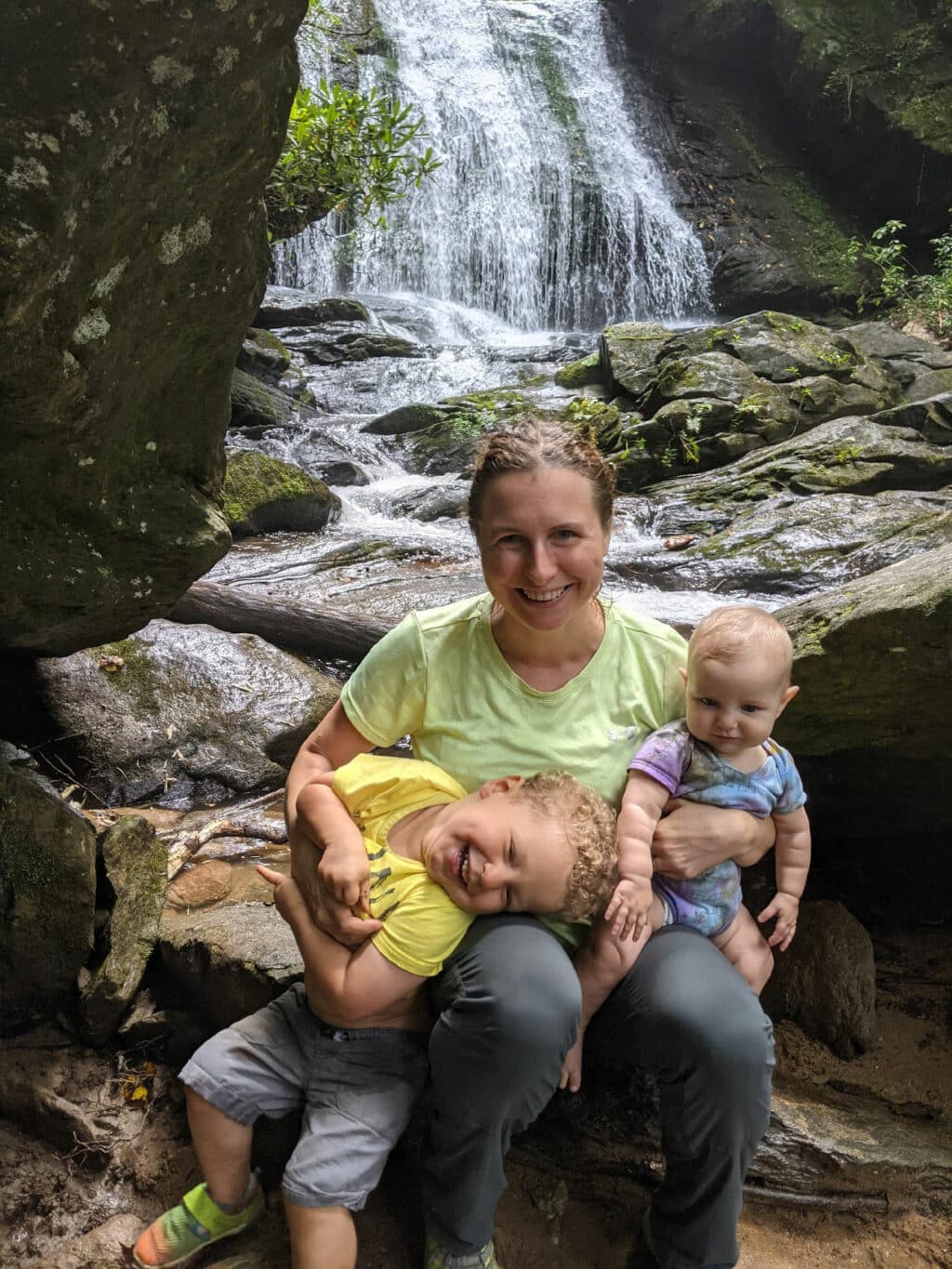

Tip #3: Hike Your Own Hike
The learning curve for hiking with little ones can be trying. You have to breathe through tantrums and work around nap times. But you also have to accept a new normal, says Manche. Compared to pre-parenthood, your adventures may be shorter, closer to home, and less spontaneous.
“My wife and I never hike further than a mile with our daughter toddling around now,” he says. “It may take us 30 minutes to go 100 yards because she’s picking up rocks or looking at plants.”
Even if you don’t have a fiercely independent 2-year-old, your pace may be slowed by postpartum recovery, a few months spent off-trail, and/or the 20-pound darling strapped to your chest. Either way, “remember that you’re not out there to beat any world records,” says Hays. “You’re hiking to have a good time.”
That means it’s OK to pick mellower walks that you’re familiar with. It’s also OK to call it quits and head for the car when your baby can’t be soothed. “Maybe your hiker spirit won’t like that,” says Hays. “However, your parent spirit will know you made the right decision.”
Wright echoes this sentiment but also reminds parents to relish all days spent outdoors with their infants—even the bad ones. “Too soon, they will be demanding snacks and wanting to walk at a snail’s pace and trying to somersault off a cliff and asking you why bears poop,” she laughs. “You will miss the days of carrying around a snuggly baby in the woods.”
Tyke-Friendly Trails
If you want to take your bundle of joy on a hike, check out these three parent-approved paths in the Southeast.
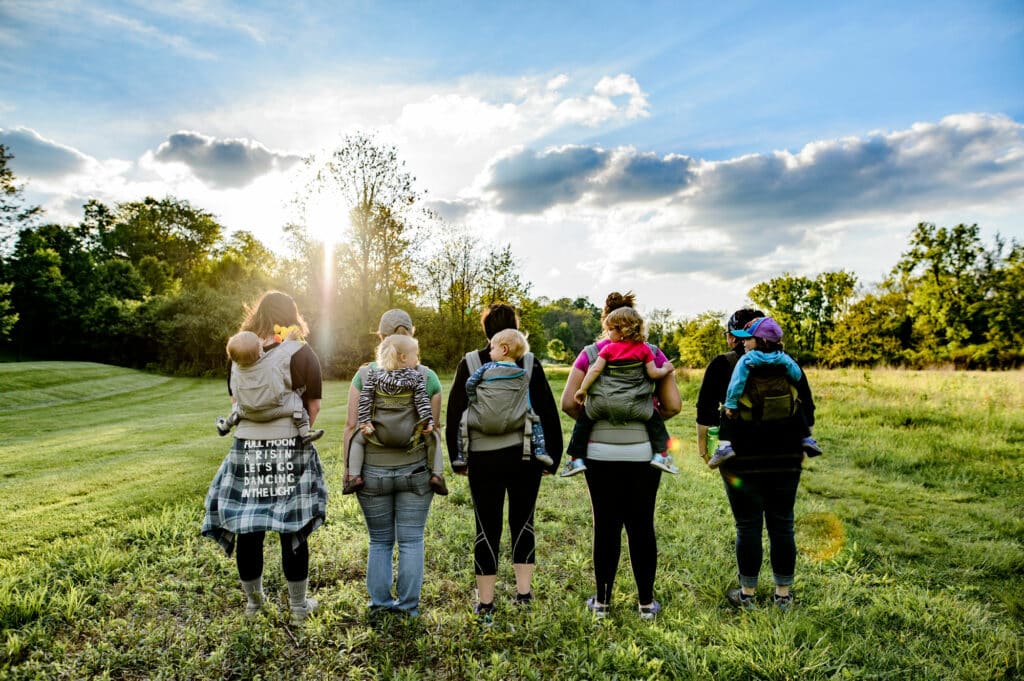
#1 Seneca Rocks Trail
Seneca Rocks, W.Va.
Difficulty: Moderate
Length: 3.5 miles out-and-back
This well-maintained trail will get your heart pumping, thanks to 807 feet of elevation gain. However, it’s still a great choice for parents adjusting to a baby carrier because there are plenty of benches to catch your breath and very few technical sections (so long as you avoid the off-trail rock scramble at the top).
#2 Moore Cove Falls Trail
Brevard, N.C.
Difficulty: Easy
Length: 1.2 miles out-and-back
Flat and mellow, Moore Cove Falls Trails is a must-see for families exploring Pisgah National Forest. The trail starts with a mild climb from Highway 276, and then follows a babbling brook to a 50-foot waterfall. Bring a picnic for an extended afternoon outdoors.
#3 Grassy Ridge Bald via Appalachian Trail
Roan Mountain, Tenn.
Difficulty: Moderate
Length: 5.0 miles out-and-back
If you’re in the mood for a longer jaunt with long-range views, check out this five-mile section of the Appalachian Trail. Though it climbs 1,079 feet, the ascent is fairly gradual. There are also plenty of spots to rest and change a dirty diaper if need be.
Cover photo: Hike it Baby can help you find your tribe of outdoorsy moms and dads. Photo by Michelle Craig
